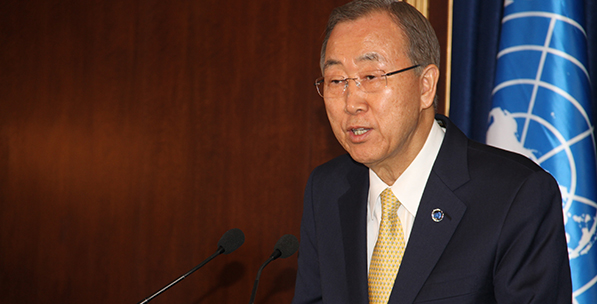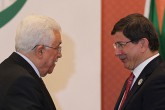Brad Pitt’s recent movie “World War Z,” which was adapted from Max Brooks novel “World War Z: An Oral History of the Zombie War” was different from other apocalyptic movies that focuses on stories of the heroes that save the world from extinction, either as a result of alien attack, a giant meteor, because of Mayan prophecy or natural disasters caused by global warming. In “World War Z,” former U.N. investigator Gerry Lane (Brad Pitt) was called back for duty by the deputy secretary general of the U.N. when a virus starts to spread in different parts of the world, and turns humans to zombies when bitten. The epidemic spreads throughout all of the major cities in the world, and the zombie invasion took over Washington, D.C. In the absence of a U.S. president or military leader, the U.N. took over the leading role in its fight against the zombies.
Investigator Lane is sent to South Korea, from where it was believed that the virus originated, and then travels to different countries in order to track down the patient zero and the source of the virus. Lane and other investigators discover a way to provide camouflage from the zombies in a World Health Organization (WHO) facility in Switzerland. The leadership of U.N. in the fight against zombies turns out successful, and although it is fiction, it is relieving to see a global organization play a significant leadership role when other global powers are absent.
For now, this scenario only takes place in a fiction world. While the world does not necessarily face the threat of immediate extinction, the fears, the sorrow and the massacres we live and witness today are at least as scary as a zombie invasion. Every day, we either witness or are shown pictures of bodies of children, women and men and these occurrences are slowly alienating us from the sorrow of people. As we think that we get visually closer to what people are going through by seeing the pain they have to endure on our computer and TV screens, we are being emotionally estranged from the agony, torment and misery in the world.
Organizations like the U.N. are not different than us. The U.N., especially its Security Council, whose main function is supposed to be keeping the peace and security for the people of the world, became more dysfunctional as the international system became more complicated. After its humiliating failure during the Bosnian crisis, the U.N. is now failing to demonstrate the leadership to stop the massacres and killings in different parts of the world.
The Security Council is now an excuse for some, and an instrument for others. None of the permanent members of the U.N. seem to be willing to do something to stop the killing of innocent civilians if their interests are not at stake. The U.N. Security Council failed miserably to stop the killing of the civilians in Syria, emboldened other authoritarian regimes to resort to force, could not stop the conflict in Gaza, and could not even take a meaningful step regarding Crimea or the recent killings in Xinjiang. Security Council members who are supposed to be the protector of global peace and security sometimes are the biggest spoiler of the system itself. Russia interfered in the domestic affairs of Ukraine, annexed some parts of its territory, and almost divided the country into two parts.
On the other hand, China threatened its Southern Neighbors because of the dispute regarding the Spratly Islands, and started to flex its muscles over the Senkaku Islands. So, when we hear about the U.N. Security Council, what we see is an organization that claims to have moral high ground regarding peace and security, but that fails to act to stop even the most egregious violations of individual security in the world. We see an organization that was formed to resolve conflicts turned into a tool to lock and paralyze the system.
Under these circumstances, the real meaning, legitimacy and function of such an organization becomes increasingly problematic. The current working of the U.N. Security Council raises too many quest
In this article
- Foreign Policy
- Opinion
- Bosnian
- China
- Crimea
- Genocide
- Global Power
- Global Warming
- Middle East
- Republic of Korea
- Russia
- Security Council
- Syria
- Syrian Civil War
- Syrian Conflict
- Syrian Crisis
- U.N.
- Ukraine
- United Nations (UN)
- United Nations Security Council (UNSC)
- United States (US)
- US President
- War Crime
- World Health Organization (WHO)
- World Warz Z Movie (2013)



